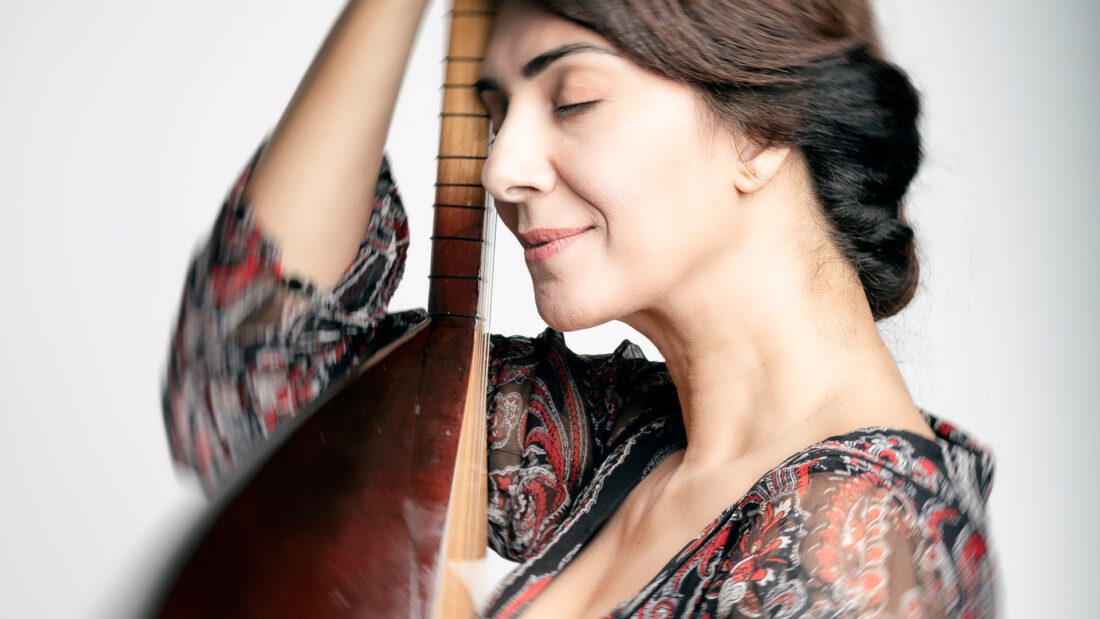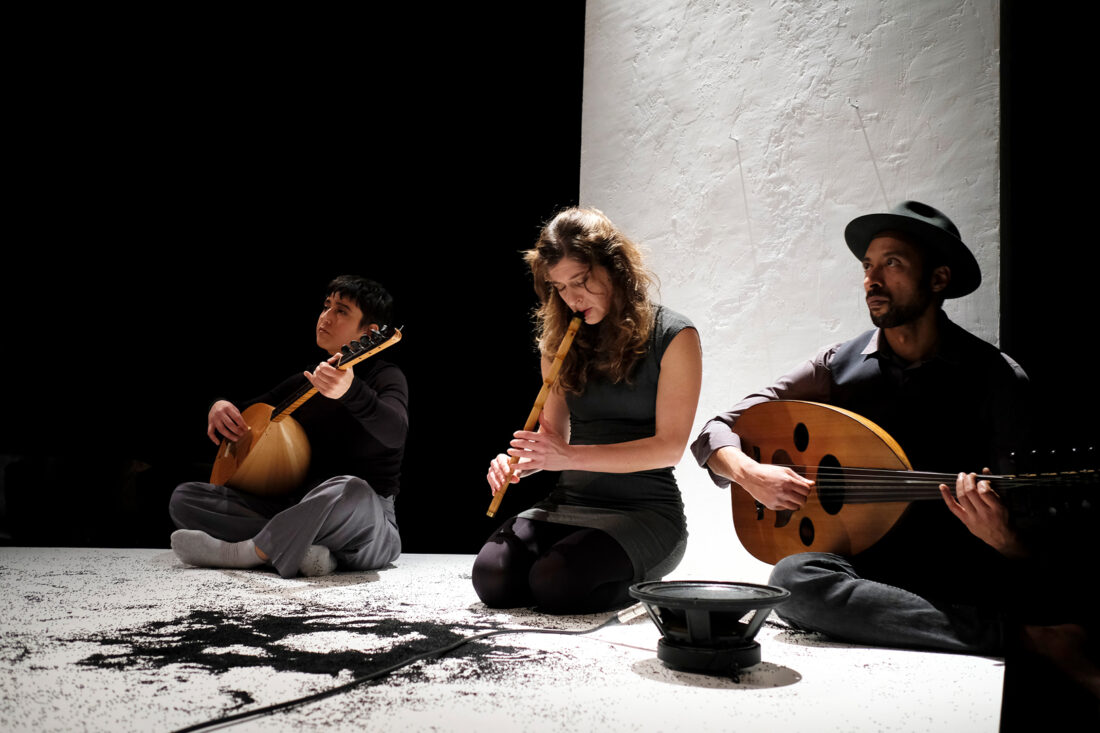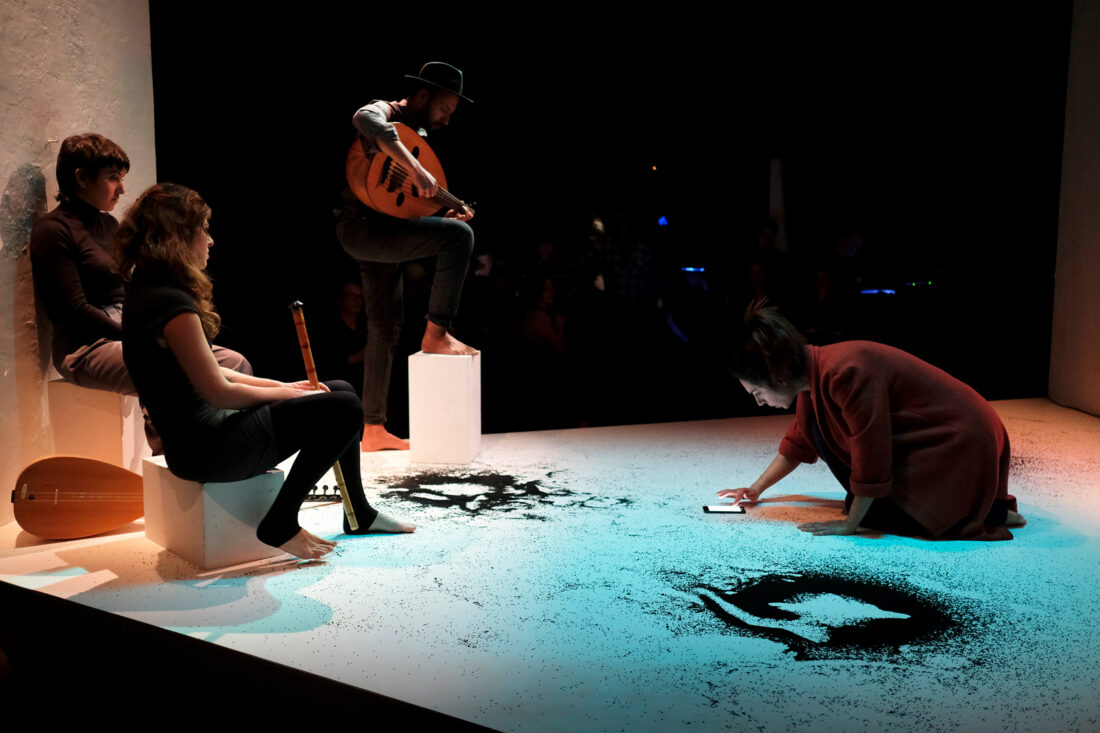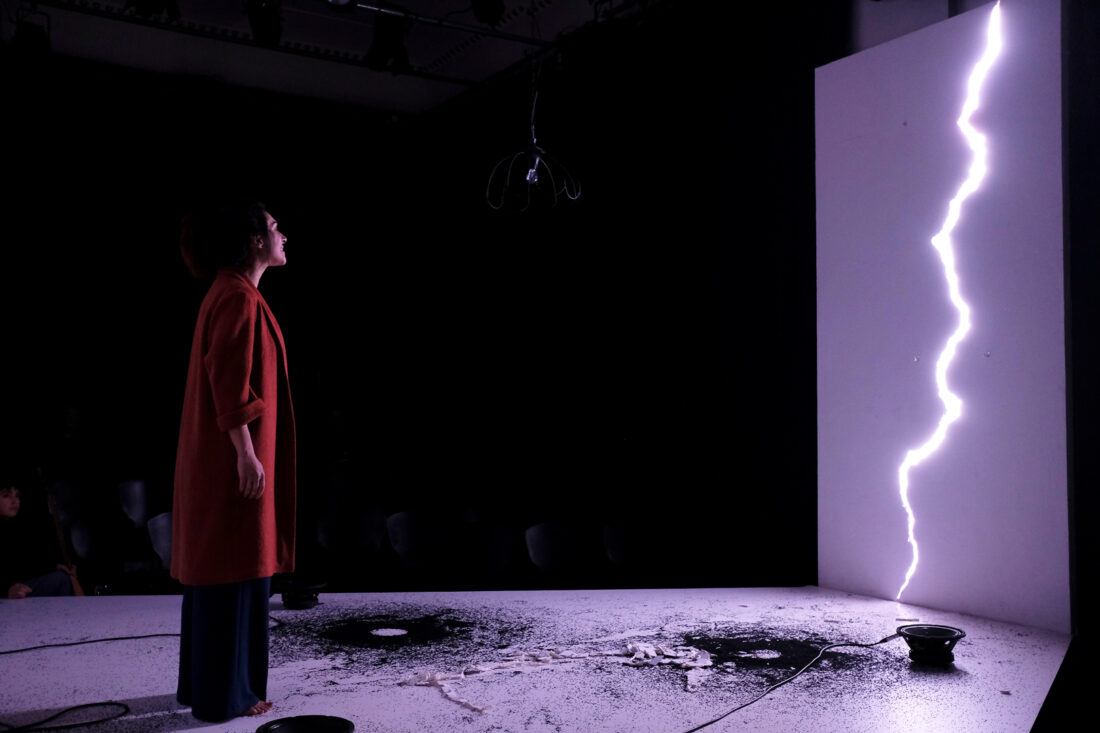
Music theatre by Bernhard Glocksin and Albert Tola with music by Taner Akyol, Valentina Bellanova, Derya Yıldırım and Alaa Zouiten
Two years after the devastating earthquake in the Turkish-Syrian border region, the world there has changed drastically: the people in Syria have been liberated from the Assad regime and are suffering renewed violence, and in Turkey hundreds of thousands are demonstrating for an end to Erdogan’s violent regime and for a life in freedom. Beyond all economic, humanitarian and social efforts: what does it take to be able to (continue to) live together or start something new? What strength do music and culture give us?
Turkish-Alevi historian Dr. Haydar Yıdılrım has spent years researching how music made its way from Persia to Andalusia and from there back to Turkey. A fascinating insight: songs and music tell of the coexistence of the cultures of Arabs, Christians and Jews and of their spirituality, which continues in the dance of the dervishes and in the songs and rites of the Turkish Alevis today. Haydar is writing a book about this, his life’s work. But Haydar is unable to complete it. On the night of February 6, 2023, he is buried like tens of thousands of others, but he manages to speak the last messages on his cell phone. This reaches Songül, a colleague, in Berlin. But why? And what is stored on this cell phone?
We dedicate our play to the historian Dr. Mehmet Yıldırım, whose burial and death we learned about during the great earthquake tragedy. HAYDAR TANZT / HAYDAR’IN DANSI combines his concrete fate – representative of that of tens of thousands of people in Turkey and Syria at the time – with the culture and history of the Alevis from Dersim, interwoven with the musical diversity of Arabic-Andalusian and Anatolian-Alevi folk music.
HAYDAR TANZT / HAYDAR’IN DANSI is the second part of the trilogy by Albert Tola and Bernhard Glocksin, which began with BÉSAME MUCHO and will conclude in June with TANGER AMOR MÍO.
For text and detailed documentation in German and Turkish, see program booklet.
Oyunumuz, Alevi tarihçi Dr. Mehmet Yıldırım‘ın, 2023 depreminde
ölümünü ve günümüze kadar devam eden Türk siyasetinin
bazı yönlerini konu alıyor. Almanca ve Türkçe metin ve
detaylı dokümantasyon için program kitapçığımızı inceleyebilirsiniz.
WITH Taies Farzan (Songül), Valentina Bellanova / Deniz Mahir Kartal (Ney), Derya Yıldırım / Çağlasu Aslan (Bağlama), Alaa Zouiten (Oud)
WITH TRADITIONAL MUSIC AND COMPOSITIONS BY Taner Akyol and the musicians Valentina Bellanova, Derya Yıldırım and Alaa Zouiten (Oud) TEXT Bernhard Glocksin and Albert Tola DIRECTION Cecilia Ligorio STAGE DESIGN Alberto Favretto
with English and Turkish subtitles on your smart phone (OPERA ACCESS)
CONTENT NOTE
Strong acoustic stimuli: loud noises when representing the earth quake, thematisation of violence


